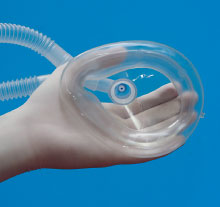Biomarker Identified Linking Aerobic Exercise And Improved Cognition
Numerous studies have found that aerobic exercise may help delay the onset of dementia. Researchers at the University of Wisconsin-Madison and colleagues have now identified a protein they say may be a biomarker for evaluating the effect of lifestyle interventions on brain function: cathepsin B (CTSB).
The findings were published in Frontiers in Endocrinology.
The researchers enrolled 23 older adults (average age 65 years) who had genetic risk factors for Alzheimer’s but no cognitive problems in the study. Eleven of the participants underwent 26 weeks of supervised treadmill training (150 minutes a week) while the other 12 were asked to do their usual physical activity. Blood samples and cognitive tests were taken before and after the 26-week study period.
The researchers specifically focused on three proteins associated with learning and memory: brain-derived neurotrophic factor (BDNF), which is involved in neuron growth; CTSB, an inflammatory protein linked with cognitive impairment; and klotho, which helps neurons form synapses.
After 26 weeks, CTSB levels rose and BDNF levels declined in the participants in the treadmill group; there were no significant changes in proteins in the other group. People who had higher post-exercise CTSB levels also had greater improvements between their pre- and post- exercise cognitive test scores. There was no correlation between the drops in BDNF from baseline in the exercise group and cognitive scores, but these drops were associated with changes in the levels of several lipid metabolites, which the researchers noted might provide some protection against neurodegeneration.
Laughing Gas Found to Rapidly Reduce Depression
Nitrous oxide—also known as laughing gas—may help to rapidly reduce symptoms of depression in patients who have not responded to other treatments, according to a study published in Science Translational Medicine.
Researchers at the University of Chicago and colleagues enrolled 28 participants with treatment-resistant depression for a crossover trial. Each patient received three one-hour inhalation sessions with 0% (placebo), 25%, and 50% nitrous oxide; the sessions were spaced about four weeks apart and given in a random order to each patient. The researchers assessed the participants’ depressive symptoms using the Hamilton Rating Scale for Depression (HAM-D 21) and other measures at two hours, 24 hours, one week, and two weeks after each inhalation session. Some participants withdrew from the study early, and the final analysis included outcomes from participants after 22 sessions with placebo, 20 sessions with 25% nitrous oxide, and 23 sessions with 50% nitrous oxide.
Participants who received the 25% and 50% nitrous oxide experienced significant reductions in depressive symptoms from baseline compared with placebo starting at 24 hours. At two weeks, scores on the HAM-D 21 were 7 points lower in people receiving 50% nitrous oxide compared with placebo, and 5.2 points in people receiving 25% nitrous oxide compared with placebo.
Importantly, the researchers found no statistical differences in symptom improvement when the participants received 25% nitrous oxide versus 50% nitrous oxide, but participants in the 25% inhalation group experienced a significantly lower rate of side effects (most commonly headaches, lightheadedness, and nausea).
“[T]hese trial results suggest that it may be reasonable to start treatment with a lower dose of nitrous oxide (25%) because of its comparable efficacy and lower risk profile but to consider escalating to 50% when a stronger treatment effect is desired,” the researchers wrote.
New Prescriptions for Psychotropics Dropped During Early Pandemic
New prescriptions for psychotropic medications dropped significantly during the first five months of the COVID-19 pandemic, a report in Health Affairs has found. While new starts for psychotropic prescriptions for adults began to rebound in August 2020, these prescriptions remained well below expected levels for children.
Researchers at Harvard Medical School and the University of California, San Diego, used the IQVIA Longitudinal Prescription Database to identify all new prescriptions for antidepressants, anxiolytics, and antipsychotics in the United States between January 1, 2018, and August 8, 2020. They forecasted the expected number of new starts for 2020 based on the 2018-2019 data and then compared the actual prescription fills to these forecasted prescriptions.
Overall, there were 7.5% fewer antidepressant starts, 5.6% fewer anxiolytic starts, and 2.6% fewer antipsychotic starts between March and August 2020 than expected. The greatest drop-offs occurred between March and May, when most states were in lockdown, but new prescriptions remained lower than expected until August. The researchers also found the greatest changes involved prescriptions for people 18 and younger. In this age group, new antidepressant, anxiolytic, and antipsychotic prescriptions were 34.6%, 27.3%, and 22.2% below forecast, respectively.
“Because it is estimated that more than half of school-age children who use mental health services receive some services in the school setting and that more than one-third receive those services exclusively in that setting, it is possible that school closures during the study period limited the opportunity to identify children in need of mental health care, or otherwise resulted in limited access to care, especially for children from disadvantaged populations,” the researchers wrote.
Genome Analysis Uncovers First Risk Variants for Alzheimer’s Psychosis
A genomewide analysis of over 12,000 individuals with Alzheimer’s disease has uncovered two genetic risk variants for Alzheimer’s-associated psychosis. About half of people with Alzheimer’s develop psychotic symptoms, which are associated with greater cognitive impairments and worse health outcomes. The findings were published in Molecular Psychiatry.
Investigators at the University of Pittsburgh and colleagues analyzed DNA samples from 12,317 adults of European ancestry with probable or confirmed Alzheimer’s; 5,445 of these adults also had experienced symptoms of psychosis. The genome analysis identified two genetic variants that were much more common in the group of patients with Alzheimer’s who experienced symptoms of psychosis: one in a gene called ENPP6 and the other near a gene called SUMF1. ENPP6 encodes a protein highly expressed in newly formed oligodendrocytes (supporting brain cells that keep nerve fibers insulated). SUMF1 encodes a protein that helps build sulfur-metabolizing enzymes known as sulfatases. Sulfatases are important in the cellular recycling process, and their deficiency can lead to neuronal damage.
The researchers did not find a strong association between genetic risk for Alzheimer’s-associated psychosis and schizophrenia, but they did find a connection between Alzheimer’s-associated psychosis and depression risk.
Obesity Amplifies Alcohol’s Harmful Effects on the Liver
The harmful effects of alcohol on the liver are amplified in people who are overweight or obese, a study in the European Journal of Clinical Medicine has found.
Researchers at the University of Sydney and the University of New South Wales in Sydney examined health data from 465,437 adults in the UK Biobank registry who had complete data on alcohol consumption and weight parameters (including body mass index [BMI] and waist circumference). They assessed the effects of drinking and obesity on the incidence and mortality of liver diseases, such as alcoholic fatty liver disease, nonalcoholic fatty liver disease, and liver cancer.
The analysis showed that adults who were overweight/obese (BMI of 25 or greater) and drank 14 or more drinks a week were more likely to develop liver diseases compared with people of normal weight who drank this amount. For example, overweight/obese drinkers were 1.5 times and 1.8 times as likely as drinkers of normal weight to develop alcoholic liver disease or nonalcoholic fatty liver disease, respectively, and 1.6 and 2.8 times as likely to die from alcoholic liver disease or nonalcoholic fatty liver, respectively.
Similar results were seen when comparing adult drinkers of normal or high waist circumference (greater than 80 cm for women and greater than 94 cm for men), with the exception that there was no association between waist circumference and death from alcoholic liver disease.
“Both obesity and alcohol consumption are modifiable risk factors and could be targeted for liver diseases risk reduction in clinical and public health settings,” the researchers wrote. “Our results suggest that populations with obesity should consume alcohol cautiously.”
Bilingualism May Help Children With ASD Understand Others
Bilingual children with autism spectrum disorder (ASD) may have an easier time understanding the beliefs of others compared with children with ASD who speak only one language, according to a study in Autism Research. The findings suggest that bilingualism may be beneficial for cognition in children with ASD.
Investigators at the University of Thessaly in Greece and colleagues enrolled 103 children aged 7 to 15 with ASD in the study, including 43 bilingual (Albanian-Greek) and 60 age- and IQ-matched monolingual children (Greek). Each participant completed a series of tasks assessing verbal skills, memory, and executive function.
The researchers found that while the monolingual children had a larger vocabulary and less sentence repetition than their bilingual peers, the bilingual children performed significantly better on a test related to “theory of mind,” or the ability to understand the mental state of others. Bilingual children also performed better than monolingual children on multiple executive function tasks, including working memory and cognitive control.
The investigators noted that some studies have suggested that strong theory of mind helps typically developing children build stronger competence in social situations. “If future work can reveal that this is also the case in ASD, then … bilingualism could positively influence social competency in ASD,” they wrote. “This should be explored in future studies directly assessing potential benefits in daily life in the context of ASD and bilingual development.” ■






